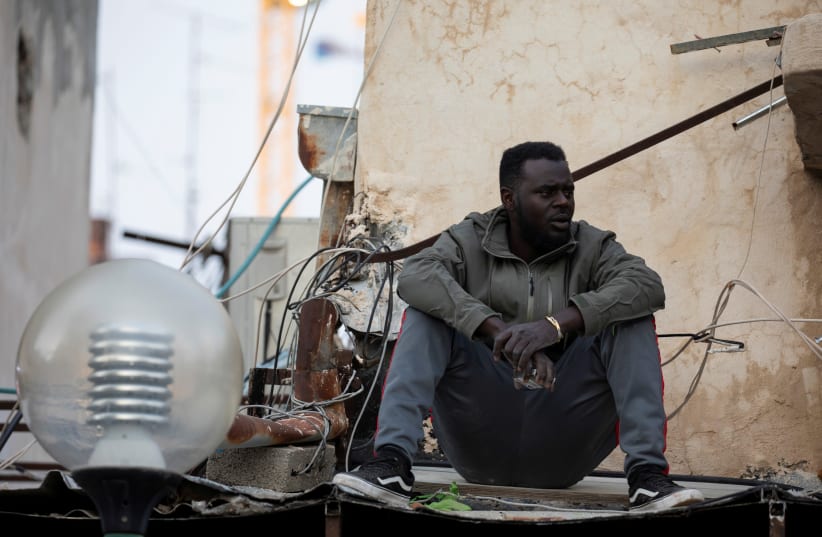A mixed picture from two recent reports emerges about the status of migrants, both African and Asian, in Israel as the country enters late 2021 with the coronavirus still hovering over nearly all issues.
On Monday, the Justice Ministry and the courts put out their annual report about the special courts for migrants’ handling of a variety of cases.
This came only two weeks after the Hotline for Refugees and Migrants put out its own annual report about the treatment of migrants.
The dueling reports talk about many of the same facts, but focus on very different issues.
For example, the courts’ report stated that the number of migrants in detention dropped from 132 in the Saharonim Detention Center and 3,106 in the Givon Detention Center in 2019 to Saharonim getting closed in 2020 and 841 in Givon.
While the Hotline confirmed these facts, it added that many migrants, both African and Asian, were held in detention in 2020 and 2021 for months at a time after agreeing to be deported to their country of origin.
The courts’ report portrays the judges as highly efficient in that eight judges handled 3,351 cases over the last two years.
But the NGO’s report depicts the judges as lacking sufficient humanity and a big-picture view, such that they allowed two Vietnamese migrants to languish for four months after the migrants had agreed to be deported in August-September 2020.
In many cases, the reason for delayed deportation has been special coronavirus-era related obstacles in flying and specific repeated canceled flights.
Yet, in the case of these two Vietnamese migrants, the state failed to even communicate to the Vietnamese Embassy that it was seeking to deport them, the Hotline said.
In addition, the Hotline’s report noted a case in which three Russians were held in detention for several months (one of them up to six months) when they were arrested in early 2020 shortly before COVID-19 hit in Israel, with the state essentially forgetting they existed.
Besides these extreme cases of the state blatantly neglecting migrants in detention, Hotline spokeswoman Shira Abbo said that if the state tried and could not succeed in getting a migrant a flight to be deported for some period of weeks, the state or the judges should have released that migrant from detention.
She said there was no reason for a migrant who was willing to be deported to be held in detention for months at a time if it became clear that it would take that long to get a deportation flight and that migrant-court judges were rubber-stamping detention extensions.
The courts’ report said the 3,351 cases it had handled could be broken down as: 1,304 refugee/illegal border crossing, 815 family reunification, 736 humanitarian, 189 other categories of entering-visiting, 77 residency, 70 citizenship, 55 labor or education, 54 child registration as well as some other cases.
Next, the courts’ report and press release praised the institution for quickly establishing an additional specialized wing to deal with coronavirus-specific issues.
Special Migrants Courts Chief Michal Tzuk said the new migrant-focused courts were established around a decade ago “to address the special sensitivities, complexities and uniqueness” of the cases and that, “this purpose of the legislature was fully realized.”
In contrast, the NGO said, “in complete contradiction to the obligations, the public interest and the basic rights of the detained migrants” the state and the courts “left many migrants behind bars for many months,” unnecessarily.
The courts’ report did note that its rulings had led to granting NIS 45 million to migrants and the NGO complimented the state on following the High Court of Justice’s ruling not to hold back any of migrants’ salaries to encourage them to be deported as had been done pre-pandemic.
Other positives described by the NGO were that the state, at least as long as the coronavirus is still occupying its efforts, is not working as aggressively to deport migrants.
Moreover, the state has made no progress in trying to deport migrants to Sudan despite last fall’s normalization deal between Sudan and Israel, which many politicians said would lead to deportations.
Rather, Abbo’s main criticism was about extremely delayed responses to refugee requests and migrants’ rights falling through the cracks of state bureaucracy, such as the migrants who remained in detention for months for no particular reason besides canceled flights, when they had been trying to cooperate in their deportation.
